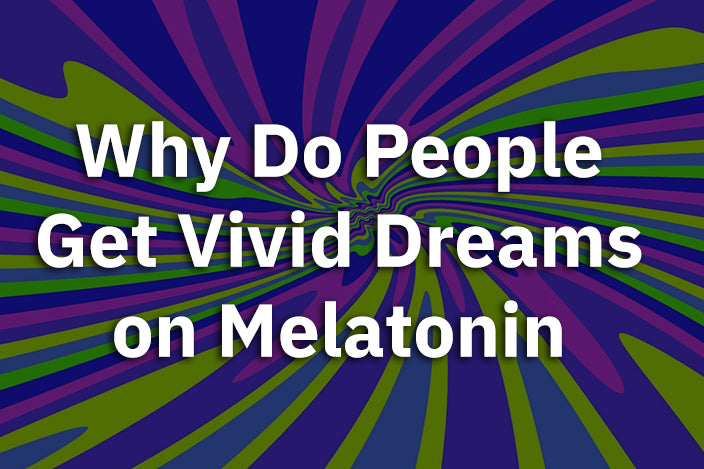Dreams frequently leave us curious and occasionally perplexed. Their intensity varies from one night to the next and from one person to the next. The vividness associated with certain sleep medications, such as melatonin, is an intriguing observation. The purpose of this article is to shed light on this occurrence.
Understanding Dreams
Dreams, those ephemeral narratives that unfold in our sleep, still remain a mystery. Their origins, while rooted in the intricate neurology of the brain, are intertwined with our emotional and psychological states.
A variety of factors, ranging from daily experiences to subconscious thoughts, can influence the content and intensity of a dream.
However, internal psychological factors are not the only ones that influence dream dynamics. External influences, particularly substances such as sleep medications, can have a significant impact. Their influence on brain activity during sleep is notable, with the potential to alter our dream experiences.

How Sleep Medications Affect the Brain
Every medication, especially those that affect sleep, interacts with the neurotransmitter systems in the brain. These systems regulate a wide range of functions, including mood, cognition, and, of course, sleep.
When sleep medications are used, they modulate neurotransmitter activity in order to induce sleep or prolong sleep duration.
This modulation can unintentionally influence other neural processes, including those involved in dreaming. For example, if a medication increases the depth or duration of REM sleep (the primary dream stage), it may increase dream vividness or recall.
This improved ability to recall dreams does not necessarily imply that one is dreaming more, but rather that one is remembering dreams better. However, for some, increased dream recall can be distressing, especially if the dreams are disturbing.

Common Sleep Medications and Supplements that Cause Vivid Dreams
Melatonin has definitely reported to increase the recall of dreams in some individuals. However, some other medications can also make dreams more vivid.
Antidepressants: Certain classes, such as SSRIs, can have a significant impact on REM sleep. Patients frequently report vivid dreams, and sometimes even nightmares.
Sedative-hypnotics: Medications such as Ambien may occasionally cause unusual or vivid dream experiences.
It's critical to understand that the dream-altering effects of these medications can vary greatly between people. Dosage, individual brain chemistry, and concurrent medications can all have an impact on outcomes.
Potential Benefits and Drawbacks
As previously stated, remembering dreams more frequently can simply indicate that the REM stage of sleep has been increased. This is advantageous because REM is required for memory consolidation and emotional regulation.
The experience of vivid dreams may be exciting for some. Dreams provide enriched landscapes where miracles can happen and sometimes the dreamer can even become lucid during the dream. Such vivid dreams can be a treasure trove for people who value dream exploration or want to better understand their subconscious.
However, not everyone feels this way. Not all dreams are pleasant; nightmares or disturbing dreamscapes can disrupt sleep, leading to fatigue or anxiety during the day. Patients must discuss these side effects with their healthcare providers in order to ensure their overall well-being and, if necessary, adjust medications.
Sleep medications, while primarily designed to address sleep disorders, can unintentionally plunge individuals into a world of heightened dream clarity. Understanding this side effect is pivotal for both patients and healthcare providers. It emphasizes the interconnectedness of our brain functions and how modulating one aspect, like sleep, can reverberate through other domains, such as dreaming.

